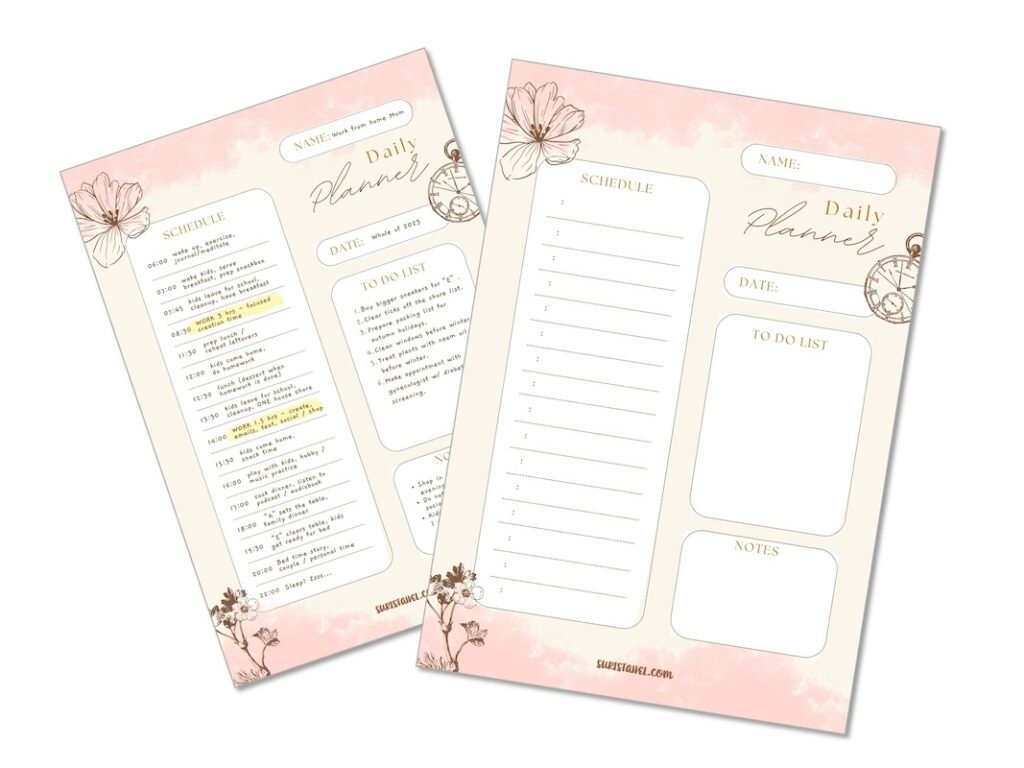MASTERING HEALTH ON PURPOSE
8 Steps to Better Self-Care for Parents
Updated July, 2023
Take care of your mind, your body will thank you. Take care of your body, your mind will thank you. – Debbie Hampton
* This post contains affiliate links, at no added cost to you.

1. Pinky promise to exercise every single day
No, walking the kids to school doesn’t count. I find it needs to be something you do for yourself that makes all the difference. Taking care of you, allows you to take care of others.
Whether it’s jumping jacks (remember those?), jogging in place, walking up the stairs, spinning, yoga, targeted physio (if you suffer pain and need to build strength), biking, jogging, or dancing… get that booty moving and check that list off! … It’ll feel SO good.
Yeah, there might be a few days when you can’t make it. But you’ll have plenty more days where you WILL be there and totally rocking it!
If you only plan to exercise 3 days a week and keep shifting those around, you’ll eventually forget all about your workout plans and it’ll be just another distant memory. Seriously, just don’t do it.
My motto: consistency trumps intensity, always.
- 🧘♀️ I like Yoga With Adriene on YouTube as it’s combines stretching, strength building and mindful meditation, all-in-one. Adriene also has a monthly playlist that you can follow and I find her 30 Days of Yoga journeys which come out each January, excellent! Subscribe to her newsletter to keep informed. You can also search her videos by areas of the body, such as yoga for the neck and so on.
- 💪 For physiotherapy exercises, these videos from Dr Rowe at the SpineCare Decompression and Chiropractic Center are fantastic!
- 🚲 For some resistance and cardio, I sometimes do 15-20 mins on the stationary bike while listening to an audiobook, podcast or watching a beautifully made short video, like ones from the Cottage Fairy.

2. Prioritise your 7 to 9 hours of sleep
This self-care tip is SO hard for me! Because it’s easily the first thing to go, when I feel like I’ve got more ‘important’ things to do.
Sometimes it’s work related, but other times it’s binge watching something on Netflix. But shhh… if nobody saw it, then it didn’t happen right? 😉 Just say N-O-.
Fact: Lack of sleep affects our memory, decision-making abilities, makes us irritable and moody, weakens our immune system (increasing the risk of obesity, diabetes, heart disease and hypertension), kills the sex-drive, and increases anxiety and depression. Scary stuff.
Yes, some people are night owls and suffer from insomnia. But are you really one of them???
3. Let go of expectations – embrace the learning curve
Save your sanity by letting go of preconceived notions of how things should be, or how your postpartum body should look like.
Don’t stress out about keeping the house neat or the laundry pile done, when you don’t have the energy to even take a shower. And yes, you’ll lose hair, feel like your joints are wobbly, and your down-under looser after giving birth. It took a year or two for things to finally even out for me.
It’s embarrassing but I’ll share what helped me:
- Waist trainers with hooks* to help hold together my tummy post birth
- Kegel weights* to strengthen the pelvic floor muscles before and after birth
- or simply Google “Kegel exercises” for routines that you can do for free
When you become a mom, you find out all sorts of things about yourself and your partner that you didn’t know before… Like if you’re a natural breast milker or a bottle giver, whether you’re a nurturer or a provider (hello career gal!), if you enjoy cooking or take out, if you like homemaking or can’t be bothered, if you’re a spender or a saver, if you’re a strict or lenient parent, if you’re quick to anger or super patient, and if your post pregnancy body is fragile or tough as nails.
Mommy brain: Yes it’s real! Some estimates say that 50-80% of women experience ‘brain fog’ post pregnancy. It’s when you can’t seem to think straight or remember things. It’s said to last two to four months after giving birth. But in reality it could be even longer.
4. Eat your 5 a day, and stay hydrated
You know this. Take sips of water all day, eat 5 portions of fruits and vegetables a day, and consume moderately. There’s not much more to add.
If you’re interested in trying a long-term diet plan, one that might be worth trying is intermittent fasting.
5. Supplement as needed
If you’re breastfeeding or pregnant, ask your healthcare provider for suitable supplements that you should take to support your health. Some of my medicine cabinet must-haves:
- Magnesium supplements* for dreaded leg cramps
- Fish oil supplements* for acne flareups and uneven menstrual cycles (no idea why this worked for it)
The World Health Organization recommends breastfeeding exclusively up to the age of 6 months. Women should continue taking a prenatal vitamin for the duration of breastfeeding. It can help baby’s brain development, processing skills and visual acuity.
6. Nurture your mental health
Find activities that help you manage stress, and don’t be afraid to ask for help if you need it (reach out to me!).
Practices that can help you quiet the mind are:
- silent walks in the morning
- mindful meditation – 👉 A great free app to try is Insight Timer.
- yoga or tai chi
- breathing exercises
- journaling
- meditative worksheets like ones from Byron Katie (click the Worksheet or the Downloads button on the top right corner for more)
7. Communicate openly and seek help
I can only imagine how scary, uncomfortable and shameful it can feel to approach the subject of mental care. But talking to your spouse or a friend you trust is the best first step.
You can also contact me if you would like my support
If you need professional help, call someone:
- Worldwide Suicide & Crisis Hotlines
- BetterHelp online therapy
- Byron Katie’s helpline for The Work (free)
8. Help others
It might feel counter intuitive to try and give, when you feel like you’re running short. But studies show that volunteering your time and support for the good of others, can absolutely improve your health and mental well being.
I know this to be true for me. I find meaning an joy volunteering in the school library, the parents’ association, picking up litter with our Trash Hero Winterthur chapter, and assisting my elderly neighbour with her groceries run.
So think about a person near you or a cause that you might consider supporting. Then engage!
You can also choose to give your energy and time to host regular family gatherings at your home. It takes work too, and helps bring your loved ones closer together.
Tip: 9 Checkups for Women Over 40
Listen to my podcast on navigating midlife in Episode 18:
